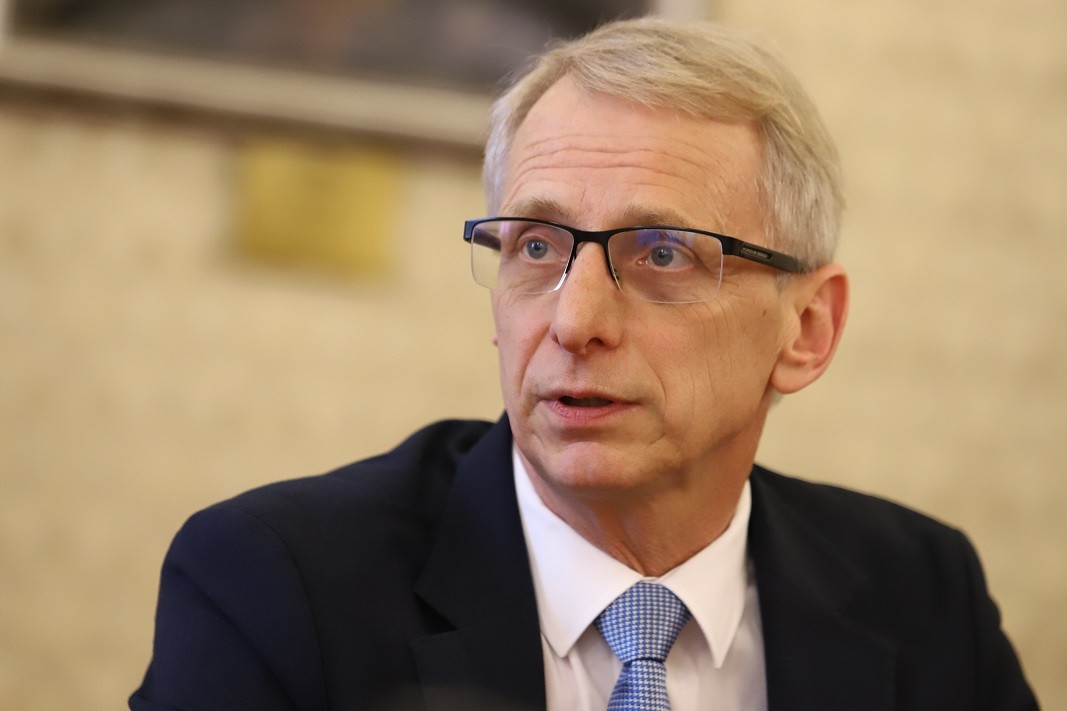Today, Thursday, 22 December, is the last day on which the political forces represented in parliament can send their priorities, around which a principled agreement can be sought for forming a government, if they decide to comply with the invitation extended by Nikolai Denkov, who was nominated for prime minister by the second biggest party in the National Assembly – We Continue the Change.
The party will be handed the second mandate for the formation of a government within the current, 48th National Assembly at the beginning of next year, but it disclosed the name of its nomination for prime minister in advance. It was the premier-designate Nikolai Denkov who announced that on the basis of the proposals made by the other parties in parliament, a realistic plan of governance will be drawn up, to be discussed at a meeting on 23 December. The talks with the parties which have responded will continue on 3 January, and as a result of these talks, a final programme declaration will be drawn up, to be submitted for a vote in plenary. If it doesn’t garner support that is sufficiently stable, then We Continue the Change will return the cabinet-forming mandate as unfulfilled, Nikolai Denkov stated.

We Continue the Change’s wish to have transparency during the negotiations on the formation of a working cabinet is shared by some observers of these political processes. The best solution would be a government with a short time horizon and with clear targets which can be publicly disclosed in advance, comments journalist Emilia Milcheva for the BNR:
“The question is what targets for this cabinet to attain will be negotiated. All parties should set down targets – accession to the Eurozone and to the Schengen area, adoption of legislation connected with the recovery plan. And talking about this legislation inevitably leads us to the technology of enforcing the democratic accountability of the prosecutor general. This probably is, and will be the dividing line among the political forces trying to form a government on the first, as well as on the second mandate.”
Political analyst Evgenii Dainov says that the prospective Denkov cabinet could prove to be a felicitous political move for We Continue the Change, whether they obtain the necessary support or not.
“In this government, for which we have not seen any names nominated as yet, I would like to see vivid figures with a good reputation, like the members of the latest regular government, because in situations such as this, in which there is a balance between the old and the new, between good and evil, the time comes for vivid political leaders. So, if such are found, leaders with a decisive government programme, it wouldn’t matter all that much whether they will form a government or not. The reason is that they have already made their bid to lead the country in a given direction,” Evgenii Dainov says in an interview with Radio Bulgaria.
The fact that Nikolai Denkov is going to attend the negotiations on a prospective cabinet on the second mandate is a good sign, because that will enable him to allay tensions among the parties so they can try and hold a normal dialogue, says on her part journalist Mira Badjeva. Still, she is sceptical a government can be formed on the second or the third mandate.
Political analyst Lydia Daskalova believes a cabinet on the second mandate is not going to be formed, because it stands a slim chance of garnering the number of votes required in plenary:
“I was pessimistic about how the scenario is going to play out in this National Assembly even before the election on 2 October this year,” she says in an interview with Radio Bulgaria. “I believe things will get stirred up on the political terrain, but only after the next election for parliament, or after the local election next year. The parties will be playing for high stakes at the local election, as the results from this election could affect a national election. That is why the Electoral Code entered the agenda, because after the local election there could be political shifts, and a very different distribution of the seats in parliament that would be key to whether we have a stable, working cabinet or not.
So that, with the best-case scenario, we could have a cabinet after the next parliamentary election, with the worst-case scenario we shall have to wait a while longer.”
Photos BGNES
Bulgaria’s Parliament failed to hold a session on October 15. "The next session is tomorrow at 9 a.m.", announced National Assembly Speaker Natalia Kiselova. Only 61 MPs registered for attendance during the first and only attempt to open the..
Yet another disaster, yet another series of analyses and post-hoc actions by the relevant institutions. The devastating flood that hit the resort village of Elenite a week ago, claiming four lives, has led the state to realise that the flooded..
“ The result of the changes in the services is the crushing of inconvenient opponents, ever more aggressive political repression, and the ever more brazen plunder of public resources and private business – about which we will be learning less and less,”..

+359 2 9336 661
